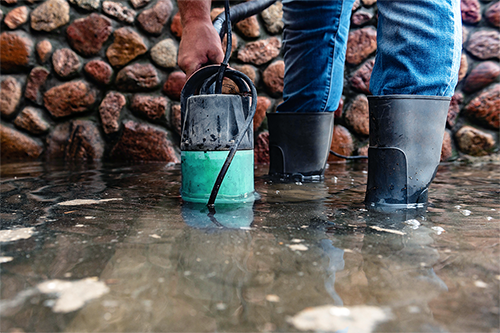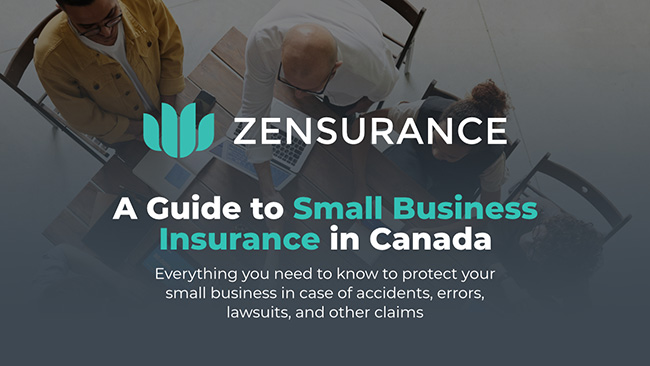Mould can threaten your business property and human health at any time of the year. Although its growth inside buildings is common during the months when the humidity is high, it can thrive after heavy rainfalls, in the winter in poorly insulated buildings, and especially in buildings with poor ventilation where moisture accumulates.
Prevention is the best cure to safeguard your premises from a mould infestation.
Let’s review how mould forms, how you can prevent it in your place of business, and how business insurance may help if it damages your business property.

Related Posts
Categories
How Does Mould Form in Buildings and Offices?
Mould can form in buildings when moisture gets inside an office or building due to flooding, excess humidity, plumbing leaks, or leaks in a roof or basement.
There are different types of mould, but one of the most commonly recognized variations is black mould. It usually grows on wood, drywall, upholstery, fabric, wallpaper, curtains and drapes, ceiling tiles, carpeting, along window sills, and behind walls. It is a threat to human health and is also expensive and difficult to eliminate.
If visible, you can spot mould by looking for stained ceilings, walls, or window sills and staining around plumbing fixtures. Mould may also have a musty, unpleasant odour.
To prevent mould contamination at your business property, consider these five tips:
1. Balance the humidity
The relative humidity in your workplace should be below 50%. When humidity inside a building is too high, it can lead to mould growth.
2. Improve interior ventilation
Ensure adequate ventilation in bathrooms, laundry facilities, kitchens, and other moisture-generating areas of the building. Check the outside vents on your building’s exterior where moisture exits ventilation lines to ensure they’re clean and unblocked.
3. Install a dehumidifier
A dehumidifier and air conditioning can reduce the amount of humidity in your building. Air purifiers can also help prevent the spread of mould.
4. Do routine maintenance
Routine maintenance on your business property is not just a task, it’s a shield against potential problems. It’s crucial for addressing minor issues before they become significant, expensive problems. Regarding mould, be sure to fix leaking pipes or roofs, faulty HVAC systems, or damaged appliances like refrigerators, freezers, and dishwashers promptly.
Also, keep the interior of your workplace clean and tidy, mop up spills, and regularly clean carpets. It’s worthwhile to get your business’s carpets professionally cleaned at least annually to prevent mould.
5. Clear gutters and downspouts
Inspect exterior downspouts and eavestroughs and keep them debris-free to ensure water from the roof drains away from the building’s foundation. Doing so helps prevent mould from forming along the roof and possibly creeping inside the building.
Does Commercial Property Insurance Cover Damage From Mould?
Many commercial property insurance policies exclude damage from mould growth. However, it may be covered if mould affects a building following an insurable loss, such as a fire or water damage from a burst pipe. It depends on the exclusions and details of your policy.
A Zensurance broker can review your policy and explain what you’re covered for and not covered for if you need help.
How to Get Low-Cost Business Property Insurance Fast
Protect your business property, contents, and finances with a low-cost business insurance policy from Zensurance.
Fill out our online application for a free quote in less than five minutes.
Our experienced brokers will shop our partner network of over 50 insurers to find the coverage you need, answer your questions, customize your policy to address your risks, and issue you a certificate of insurance.
Related Posts
What Is a Deductible in Small Business Insurance? (Definition, Examples & How It Works)
A deductible is the amount your small business pays out of pocket when you file an insurance claim. Understanding how deductibles work can help you lower premiums, avoid surprises, and choose the right coverage.
Why E-Commerce Insurance Matters for Online Sellers in Canada
If you sell products online in Canada, e-commerce insurance – also known as online business insurance – is essential to protect your finances, inventory, and reputation. Here’s what online sellers, dropshippers, and small e-commerce businesses in Canada need to know.
What Happens If Your Small Business Gets Sued in Canada?
Being sued as a small business owner can be financially and emotionally overwhelming. Legal defence costs can quickly climb into the tens of thousands of dollars. This article explains what happens when your business is sued, how business liability insurance can help cover legal fees, and how to reduce your risk of being sued in the first place.
Sign Up for ZenMail
"*" indicates required fields









